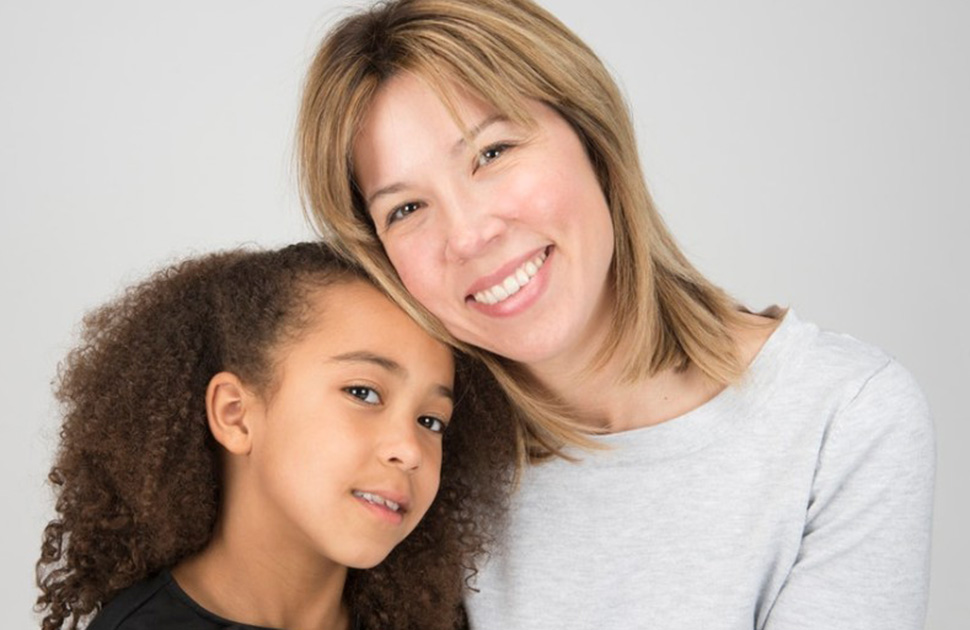
For best results make sure background graphics are enabled.
Table of contents
- What causes vomiting and diarrhea?
- Taking care of your child at home
- Staying hydrated
- When to your doctor or go to the Emergency Department
What causes vomiting and diarrhea?
Vomiting (throwing up) and diarrhea (watery stools or poop) are often caused by a virus (a kind of germ). Although there is no medicine to cure these infections, your child’s body should get rid of the virus in 7-10 days without having to go to a doctor or emergency room. During this time, you will need to make sure they don't lose too much body fluid. Babies and young children can lose a lot of water and important salts when they are vomiting or have diarrhea. The loss of too much water and important salts is called dehydration, and this can be very serious for a baby or young child.

Do not give your child over-the-counter medicines to stop vomiting or diarrhea. These medicines do not help with hydration, and may slow down your child’s body in getting rid of the infection.
✓ My child is vomiting (with or without diarrhea)
With viral infections, vomiting is often worse at the beginning and diarrhea may come a few days later.
Don’t worry if your child vomits only once or twice. If they vomit a third time, follow these steps:
- Check prescription medications
Call your doctor if your child is taking a prescription medication and throws up more than one dose. - Replace fluids using breast milk or clear fluids
If you are breast feeding:
• Feed your baby for less time, more often. For example, if your baby usually nurses for ten minutes/side every three hours, try five minutes/ side every hour and a half).
• Wait 30 minutes. If they vomit again, give one tablespoon of clear fluids every ten minutes.
If you are not breast feeding:
•Give your child or youth one tablespoon of clear fluids every ten minutes. - Treat fever
If your child or youth has a fever, help them feel more comfortable by giving acetaminophen (Tylenol®, Tempra®) or ibuprofen (Advil®, Motrin®). Do not give ibuprofen to babies under six months of age. - Watch for dehydration
Babies under age 2 should have at least four wet diapers a day. Children older than age 2 should go pee 3-4 times per day. Signs of dehydration can include peeing less than 50% of their normal and being sleepy or having very dry lips. - Feed your child
If your child is old enough to eat solid foods they may not want to eat food for a few days. This is OK, as the most important thing is to keep them well hydrated. If your child is taking food, you can keep offering this. Most children will be back to their normal diet in a day or two.
✓ My child has diarrhea (without vomiting)
Diarrhea means watery stools (poop) that happen more often than usual. It takes a little time for the bowel to heal, so you might notice that your child’s stools stay quite soft for up to ten days after the diarrhea. The guidelines below are the same for children of any age.
- Replace fluids using breast milk or clear fluids
If you are breast feeding:
• Breast feed often to replace the fluids lost through diarrhea.
• If your child has started other foods, slowly begin to feed them their normal diet.
If you are not breast feeding:
• Slowly begin to give them their normal diet (like formula or milk).
Staying hydrated
Staying hydrated when sick is important. Children with mild dehydration can be hydrated with clear fluid (such as diluted apple juice or diluted ginger ale) or Oral Rehydration Solutions (ORS) like Gastrolyte® or Pedialyte®. ORS are:
- made with the right balance of sugars, salts and water to replace the fluids lost from vomiting and diarrhea.
- available in most drug stores
- available in different flavours, and taste better cold, or made into popsicles.
Speak to your nurse if the cost of ORS will be difficult for your family.

Call your doctor or go to the Emergency Department if your child:
• is three months old or younger, and has a fever (temperature higher than 38°C)
• is less than three months old and has had diarrhea for more than two days (48 hours)
• has a fever for more than five days (temperature higher than 38°C)
• has bloody or black stools (poop)
• vomits blood or green bile
• has diarrhea for more than ten days
• has abdominal pain that is getting worse
• shows signs of dehydration (less than four wet diapers in 24 hours, dry mouth, sunken eyes or a sunken soft spot on the head, no tears when crying, very sleepy and hard to wake up)
 Looking for translation?
Looking for translation?
Did you know: our care resources can be translated into over 100 languages using Google Translate! Click the Translate button on the top right corner of your screen and select your preferred language to get started.
Disclaimer
This resource is for educational purposes only, and was originally written in English and translated to French. Translation to any other languages is automatically provided through Google Translate, and not official. There may be subtle differences or inaccuracies. If you have any questions about medical matters including your care and treatment, please reach out to your health-care team.




